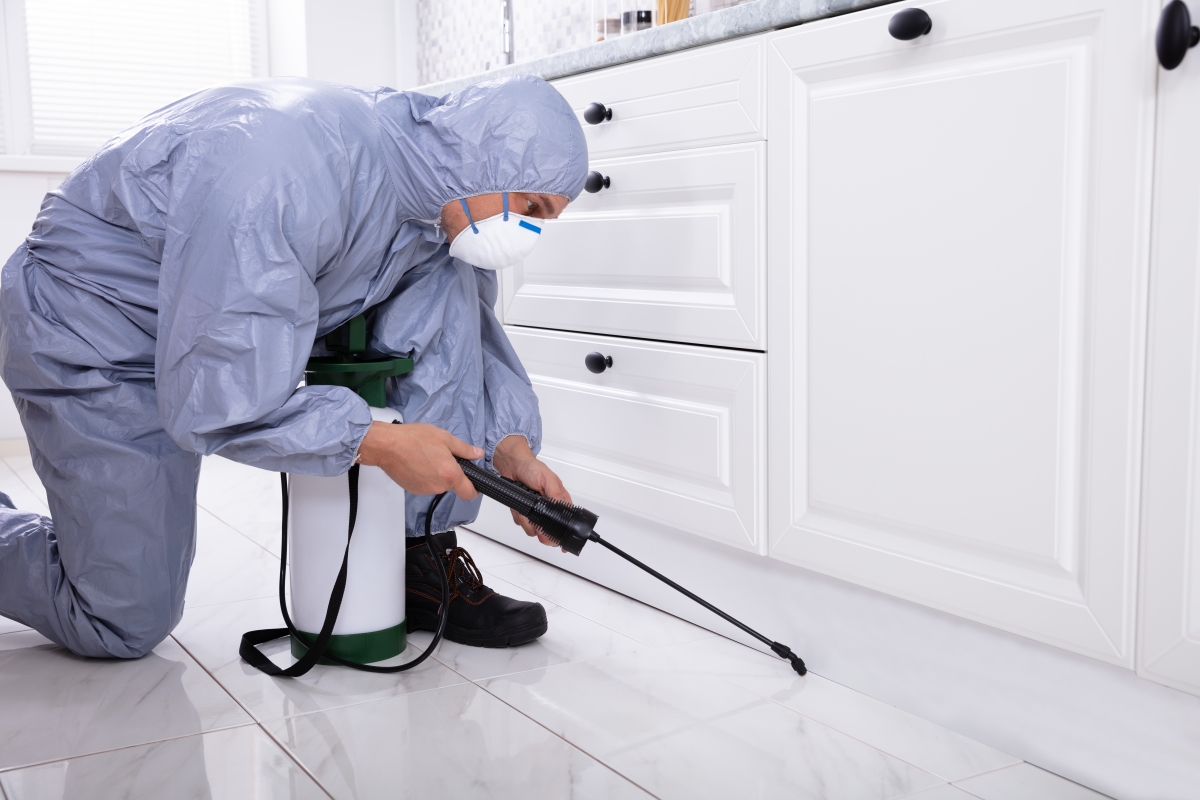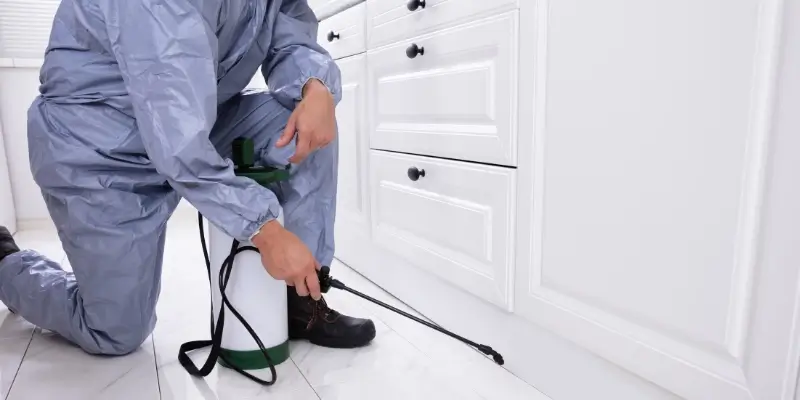Safe and Dependable Pest Control for Lasting Security
Efficient bug administration calls for a diverse strategy that stabilizes ecological honesty with the demand for reliable parasite reductions. The subtleties of these approaches may not be quickly clear, prompting a better exam of the techniques that can lead to lasting parasite control outcomes.
Comprehending Bug Control Approaches
Insect control incorporates a range of approaches focused on managing and getting rid of unwanted insects and rats that can threaten both wellness and property. Recognizing these methods is crucial for reliable insect monitoring.
The main categories of parasite control techniques consist of mechanical, organic, and chemical methods. Mechanical methods involve physical obstacles and traps to protect against bug entrance and capture unwanted species. Making use of displays on home windows or utilizing sticky catches can considerably minimize pest populations without presenting harmful compounds - exterminator coquitlam.

Chemical parasite control is commonly the most acknowledged approach, using pesticides to remove parasites. These chemicals can be effective however have to be made use of with care to avoid unfavorable impacts on non-target types and the setting.
Benefits of Eco-Friendly Solutions
How can environment-friendly remedies change bug control methods? The adoption of environmentally friendly insect control methods offers countless advantages, significantly boosting the effectiveness and safety and security of parasite monitoring (exterminator coquitlam). To start with, these remedies make use of all-natural active ingredients, lowering the dependence on unsafe chemicals that can posture threats to human wellness and the setting. This change not just shields families and animals but additionally reduces the potential for soil and water contamination.

One more advantage is the favorable influence on local biodiversity. Green services are made to target particular parasites while protecting helpful insects and wildlife, advertising a balanced environment. This technique straightens with the growing consumer demand for sustainable practices, enhancing the credibility of bug control companies.
Integrated Insect Administration Methods
The execution of green remedies naturally results in the fostering of Integrated Pest Administration (IPM) methods, which better enhance pest control efficacy. IPM is a holistic approach that combines numerous methods to manage pest populations while minimizing environmental impact. This method stresses using organic, social, mechanical, and chemical controls, ensuring a well balanced and sustainable technique of pest monitoring.
One basic element of IPM is the complete evaluation of pest task and environmental problems. By checking bug populations and identifying their life cycles, experts can apply targeted treatments that interrupt the insect's habitat or lifecycle, lowering reliance on chemical pesticides. Furthermore, cultural techniques such as plant rotation and habitat manipulation can considerably decrease bug facility and reproduction.
One more important part is using organic control representatives, such as useful bugs or microorganisms, which can normally reduce bug populations. When chemical applications are required, IPM focuses on using low-risk chemicals and applies them precisely, reducing exposure to non-target microorganisms and human beings.
Incorporating IPM strategies not just improves bug control performance but likewise promotes a much safer community, aligning with the growing need for sustainable techniques in pest monitoring.
Safe Practices for Homeowners
Recognizing the significance of secure practices in parasite control can encourage property owners to successfully take care of pest issues while protecting their health and wellness and the setting. Implementing preventative measures and non-toxic methods is essential in reducing exposure to dangerous chemicals.
Home owners should first assess their environment for conditions that attract insects, such as standing food, water, and clutter waste. On a regular basis cleaning and securing entrance points can prevent pests from getting into the home. Utilizing all-natural deterrents, such as vital oils or diatomaceous earth, can offer effective choices to chemical pesticides.
When chemical treatments are necessary, home owners must choose items that are particularly labeled as secure for domestic use. It is vital to comply with application guidelines thoroughly to avoid too much exposure. Using targeted treatments in locations where parasites are determined, rather than blanket spraying, can significantly reduce chemical usage.
Last but not least, maintaining open interaction with insect control experts is crucial. Property owners should ask about the safety and security of items utilized and demand environmentally friendly options whenever feasible. By embracing these secure techniques, homeowners can develop a healthier living setting while properly handling pest concerns.

Tips for Long-Term Protection
Developing a bug administration strategy that stresses long-lasting defense can greatly boost the efficiency of important site the secure techniques formerly discussed. To achieve this, homeowners ought to execute routine assessments of their building, concentrating on concealed locations such as attic rooms, cellars, and crawl rooms. Early discovery of parasite task is critical in preventing infestations from taking hold.
These techniques minimize attractants that draw parasites right into the home. Sealing access points, such as cracks around doors and windows, can effectively obstruct prospective insect gain access to.
Landscaping ought to also be considered; maintaining plants cut and preserving a distance between vegetation and the home minimizes concealing spots for pests. Making use of all-natural deterrents, such as crucial oils or diatomaceous planet, can better prevent problems without turning to extreme chemicals.
Finally, working together with a professional parasite control service for routine examinations can provide an additional layer of safety and security. These experts can use tailored referrals and advanced therapies, making sure that your home remains protected versus parasites in the long-term.
Conclusion
To conclude, risk-free and dependable insect control needs a multifaceted strategy that highlights eco-friendly methods and incorporated insect monitoring. By applying natural deterrents, conducting normal evaluations, and keeping proper hygiene, homeowner can substantially lower parasite populations while protecting useful bugs and the setting. Cooperation with specialist parasite control continue reading this solutions boosts the performance of these strategies, ensuring customized remedies that provide lasting protection and assurance against future infestations.
Effective pest management requires a multifaceted method that balances ecological integrity with the requirement for reliable parasite reductions. The fostering of environment-friendly parasite control approaches offers countless benefits, significantly boosting the effectiveness and safety and security of parasite management.The execution of environmentally friendly services naturally leads to the adoption of Integrated Pest Administration (IPM) methods, which additionally enhance insect control efficacy. exterminator coquitlam. By keeping track of parasite populaces and determining their life cycles, experts can carry out targeted treatments that interrupt the insect's environment or lifecycle, lowering dependence on chemical pesticides.In conclusion, dependable and risk-free bug control calls for a multifaceted strategy that highlights environment-friendly approaches and integrated visit their website bug management